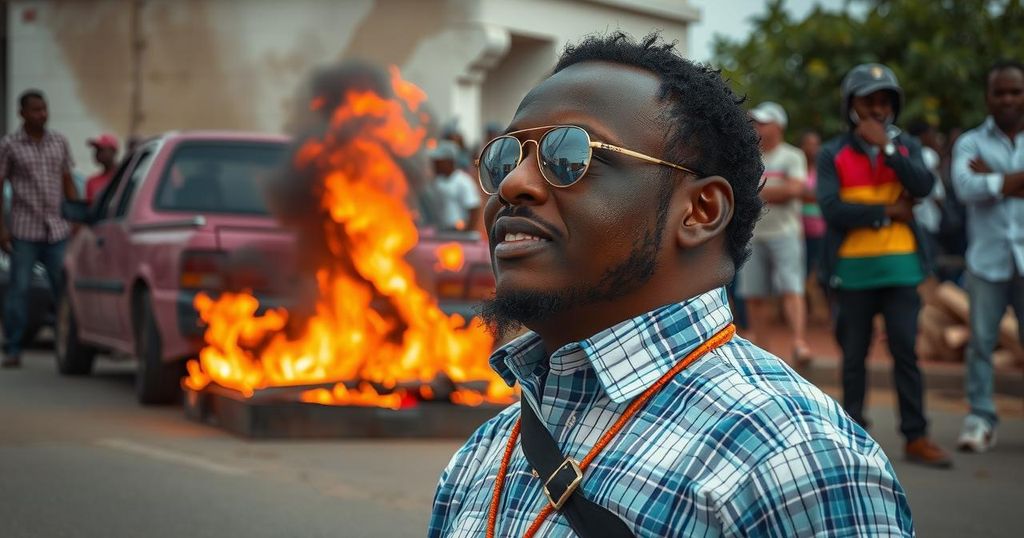Mozambique is experiencing severe civil unrest following elections that confirmed Frelimo’s continued rule, resulting in over 278 deaths, widespread protests, and significant economic disruption. The capital, Maputo, has become the center of violence, with escalating incidents of looting and vandalism. As residents grapple with shortages and high inflation, thousands flee the chaos, highlighting an urgent need for resolution and stability.
Mozambique is currently engulfed in turmoil following the recent elections, which confirmed the ruling party, Frelimo, in power for half a century. In the wake of the election results, urban riots have erupted, leading to significant loss of life with at least 176 fatalities in just one week. With widespread reports of vandalism and looting, the capital, Maputo, has become the focal point of escalating violence. The opposition has taken to the streets, vocalizing claims of electoral fraud and a “stolen” election, further intensifying the unrest.
The situation has deteriorated to such an extent that at least 278 individuals have been reported killed in the post-election chaos since October, predominately as a result of gunfire, as reported by the NGO Plataforma Decide December 29. Additionally, over 4,200 arrests have been made in relation to the unrest, including an alarming number in recent days. Witness calls on social media reflect a distressing reality, with many families searching for missing relatives amid the escalating violence.
In a separate but related incident, approximately 1,500 prisoners escaped from a central prison in Maputo on Christmas Day; reports indicate that dozens were killed in clashes during the escape. This incident has raised significant concerns about security, especially with nearly 30 escapees tied to the ongoing jihadist insurgency in Cabo Delgado.
The unrest has not only led to fear and instability within Maputo, where ambulances and medical facilities have been targeted, but it has also disrupted essential services, including grocery supplies. Supermarkets are experiencing closures, while local businesses have been severely impacted, leading to shortages of basic goods with prices spiking. The violence has further affected foreign investments, as operations are interrupted by roadblocks and protest activities targeting mining companies. Furthermore, the economic impact of the unrest has been estimated around $430 million.
President Daniel Chapo has publicly appealed for peace and unity, while opposition leader Venancio Mondlane has alleged that security forces are complicit in the violent actions, suggesting that the unrest may serve as a pretext for imposing a state of emergency. This political strife and escalating violence have left many Mozambicans seeking refuge in neighboring countries such as Malawi and Eswatini, reflecting the dire humanitarian situation evolving from this crisis.
The current unrest in Mozambique stems from the recent confirmation of Frelimo’s election victory, extending their rule of 50 years. The electoral process has been marred by allegations of fraud, ensuing protests, and civil disobedience which have rapidly evolved into violent riots. The political landscape in Mozambique is marked by long-standing tensions between the ruling party and opposition groups, a situation exacerbated by the current economic climate, which has been severely impacted by recent supply chain disruptions and inflation.
In summary, Mozambique finds itself in a precarious situation marked by escalating violence and civil unrest following the recent elections. With hundreds killed, thousands arrested, and a significant humanitarian crisis unfolding, the response from both the government and opposition will be critical in determining the country’s stability. The economic implications are substantial and can potentially hinder Mozambique’s progress, while public sentiment remains charged amidst calls for justice and accountability regarding the electoral process.
Original Source: international.la-croix.com






